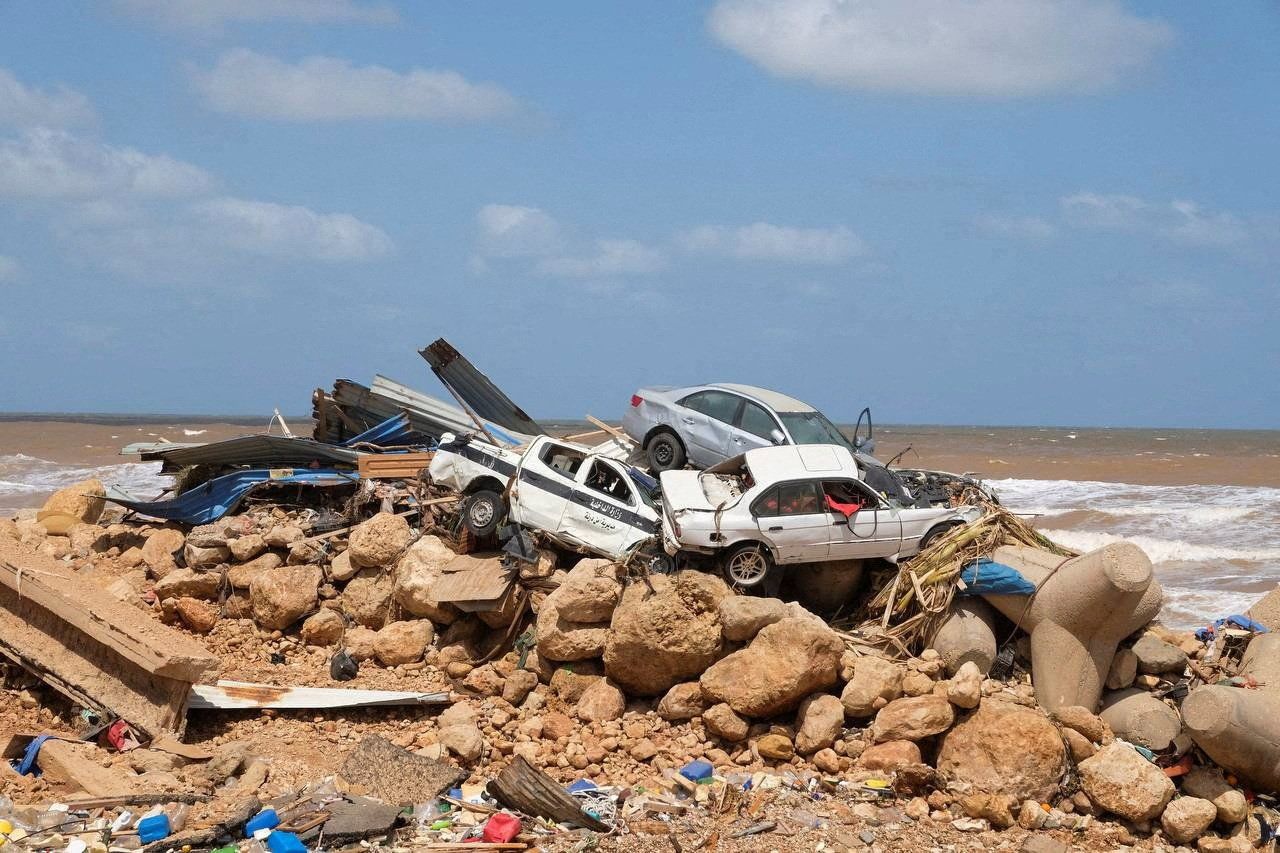Eastern Libya is reeling from devastating floods that have killed at least 3,000 people, while as many as 10,000 are missing. The deluge ripped through two dams on Monday, destroying entire towns and neighborhoods.
Much of the destruction is centered around the eastern city of Derna on the Mediterranean.
The recovery effort is underway, but there are fears that political factionalism could frustrate that mission. That’s largely because the eastern part of the country where the flood hit is largely ruled by a warlord who is vying for control of territory and energy resources.
A recap: Libya’s fractured politics. Since 2014, three years after Libya’s longtime despot Muammar Qaddafi was killed in an uprising, political power has been split between two rival governments, the UN-backed Government of National Accord (GNA), and a rival faction led by the self-described anti-Islamist Khalifa Haftar, a former general in Qaddafi’s army who leads the Libyan National Army (LNA).
Each side has captured oil fields – the country's economic lifeline – and each has its own central bank. What’s more, Islamic militant groups have also struggled for power.
For now, the two sides seem to be working together. After this week’s events, the government in western Libya sent 14 tons of medical supplies as well as health workers to the eastern city of Benghazi, while also earmarking $412 million for reconstruction of Derna and surrounding areas – shocking many observers who have watched the conflict devolve over the past decade.
“The priority right now is to deal with the humanitarian situation,” says Omar Monieb, a Middle East expert at Eurasia Group, adding that while “both sides are trying to showcase international support and publicizing the calls/aid that they received because it shows some form of legitimacy,” they still seem to be cooperating on the recovery effort.
Meanwhile, a top military chief from Egypt, Haftar’s main ally, has reportedly flown into Libya to help coordinate the recovery effort, while Turkey and the United Arab Emirates have also sent rescue teams.
(For more on the role of outside players in the conflict, see our explainer here.)
Despite the show of unity, political tensions remain high between the rival governments – and the militaries they control – who continue to reject international efforts to oversee fresh national elections.
